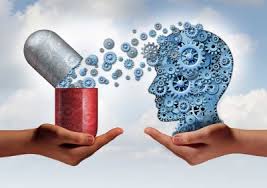- Store
- >
- Recovery Supplements
- >
- BrainFIX- Alcohol R&R - ALCOHOL DESTROYED A LOT - RECOVER FASTER, FEEL BETTER FASTER, PROVEN INGREDIENTS REDUCE OR ELIMINATE URGES & CRAVINGS TO DRINK- EASE STRESS AND FEELINGS OF DISCONTENTMENTREDUCE RELAPSE CHANCES - RECOVERY I
BrainFIX- Alcohol R&R - ALCOHOL DESTROYED A LOT - RECOVER FASTER, FEEL BETTER FASTER, PROVEN INGREDIENTS REDUCE OR ELIMINATE URGES & CRAVINGS TO DRINK- EASE STRESS AND FEELINGS OF DISCONTENTMENTREDUCE RELAPSE CHANCES - RECOVERY I
SKU:
94.5
229
$94.50 - $229.00
$94.50
Unavailable
per item
Brain R&R - Alcohol - may provide nutritional support for the natural replenishment of neurotransmitters depleted by the long-term use of alcohol.
The brain chemistry involved in many forms of dependencies has been carefully described by qualified researchers for almost 30 years. Scientists have now concluded that the compulsive desire for excessive alcohol consumption in most instances has a genetic origin that is triggered by environmental factors.Excessive use of alcohol is not a sign of a weak individual and is not an indication of irresponsibility or instability, but rather it is an actual physical condition that some individuals are born with and others unwittingly develop. This vicious cycle is continued in people's lives until they discover a healthy alternative to help control the desire to drink excessively.
It is believed by many that the deficiency of a number of neurotransmitters is associated with excessive alcohol use. These neurotransmitters are GABA, Enkephalin, Dopamine and Serotonin. When these neurotransmitters are in a deficient state, either via genetics or environmental stress, the person experiences unpleasant and unacceptable feelings of anxiety, inadequacy, anhedonia (lack of pleasure), and emotional instability.
BrainR&R may provide a natural means of dealing with neurotransmitter deficiency. Alone, BrainR&R, along with a healthy diet, may support the replenishment of these neurotransmitters that may ease the desire for excessive alcohol, and may increase internal calm. Brain R&R also contains ingredients that may reduce cravings and have anti-addictive properties.
An individual's brain naturally produces certain chemicals. Once a person turns to an outside source (such as alcohol), which contains some of the chemicals that the brain already produces, the brain may recognize an overabundance of these elements and may slow down their production, thereby creating a deficiency.
The brain chemistry involved in many forms of dependencies has been carefully described by qualified researchers for almost 30 years. Scientists have now concluded that the compulsive desire for excessive alcohol consumption in most instances has a genetic origin that is triggered by environmental factors.Excessive use of alcohol is not a sign of a weak individual and is not an indication of irresponsibility or instability, but rather it is an actual physical condition that some individuals are born with and others unwittingly develop. This vicious cycle is continued in people's lives until they discover a healthy alternative to help control the desire to drink excessively.
It is believed by many that the deficiency of a number of neurotransmitters is associated with excessive alcohol use. These neurotransmitters are GABA, Enkephalin, Dopamine and Serotonin. When these neurotransmitters are in a deficient state, either via genetics or environmental stress, the person experiences unpleasant and unacceptable feelings of anxiety, inadequacy, anhedonia (lack of pleasure), and emotional instability.
BrainR&R may provide a natural means of dealing with neurotransmitter deficiency. Alone, BrainR&R, along with a healthy diet, may support the replenishment of these neurotransmitters that may ease the desire for excessive alcohol, and may increase internal calm. Brain R&R also contains ingredients that may reduce cravings and have anti-addictive properties.
An individual's brain naturally produces certain chemicals. Once a person turns to an outside source (such as alcohol), which contains some of the chemicals that the brain already produces, the brain may recognize an overabundance of these elements and may slow down their production, thereby creating a deficiency.

